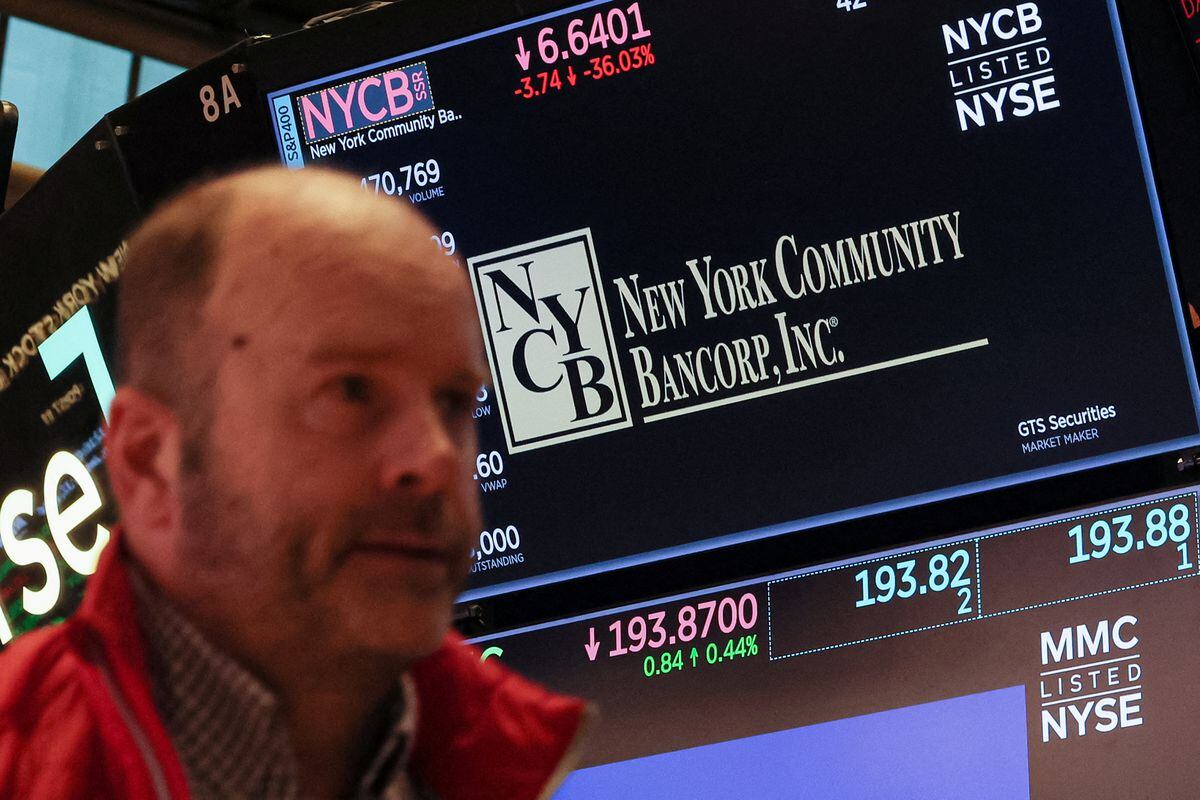Investors have been pointing to New York Community Bancorp as a possible next victim of the financial turmoil in the United States since last week, and the market's punishment has something of a self-fulfilling prophecy.
The entity's shares plummeted on the stock market after it surprisingly announced that it had entered a loss in the fourth quarter.
Since then, it has been subject to constant surveillance and this Tuesday the entity has received a hard blow.
Moody's, the main financial rating agency, has lowered the entity's solvency rating to junk bond level.
This Tuesday, Moody's lowered the rating from Baa3 to Ba2, two steps below investment grade, and has also warned that there may be further cuts if conditions deteriorate.
A rating like this is a calamity for a financial institution.
Moody's notes in its report financial and governance risks, including those related to the bank's risk and audit functions, at a crucial time for the entity.
Bloomberg published last week that key executives from those areas had left the entity.
The bank's shares plummeted another 22% this Tuesday, to $4.20, accumulating a drop of more than 60% in one week at the close.
In addition, they have plunged again outside normal trading hours after the Moody's report became known.
In just one week, the shares have lost two-thirds of their value and are trading at their lowest since 1997.
Moody's plans to focus on the prospects of the bank's commercial real estate portfolio, profits, capitalization and use of wholesale financing as it weighs whether to cut its ratings again.
It will also assess governance, including risk and balance sheet management.
The agency has indicated that it could downgrade the bank if its credit performance weakens, its use of market financing increases relative to deposit financing, it fails to strengthen capital or it experiences a loss of depositor confidence that undermines liquidity.
Stock market crashes and deposit leaks have sometimes gone hand in hand in other entities, feeding off each other.
The entity reported last week that its annual profits had skyrocketed, from 617 million in 2022, to 2,341 million in 2023. However, these results included an accounting item of about 2,200 million dollars of negative goodwill due to the purchase of assets from Signature Bank, an entity that fell into the banking crisis a year ago.
Once adjusted for that item and other items, the 2023 profit was $609 million, 4% less than the previous year.
However, in the last quarter, the bank recorded losses of $252 million, with a need for provisions that surprised analysts and investors.
Silicon Valley Bank, Signature Bank and First Republic Bank fell last year because of their debt investments, which lost value as interest rates rose.
It was a problem that affected many more entities and that is why there was at times a systemic risk.
In the case of New York Community Bancorp, the trigger for its entry into losses is the commercial real estate sector.
Again, many US regional banks have relevant exposure to that segment of the market.
Rising interest rates, the rise of remote work due to the pandemic and other changes in consumer trends and regulation have punished the value of commercial real estate and made it difficult to refinance in some cases.
Curiously, NYCB was one of the entities that emerged apparently stronger from the crisis of a year ago.
Through its subsidiary Flagstar Bank, it agreed to assume $38 billion of the bank's assets, including $25 billion in cash and about $13 billion in loans, from the Federal Deposit Insurance Corporation (FDIC).
The price of its shares more than doubled, reaching around $14 per share at the end of July, although in recent months it had lost ground.
Follow all the information on
Economy
and
Business
on
and
X
, or in our
weekly newsletter

